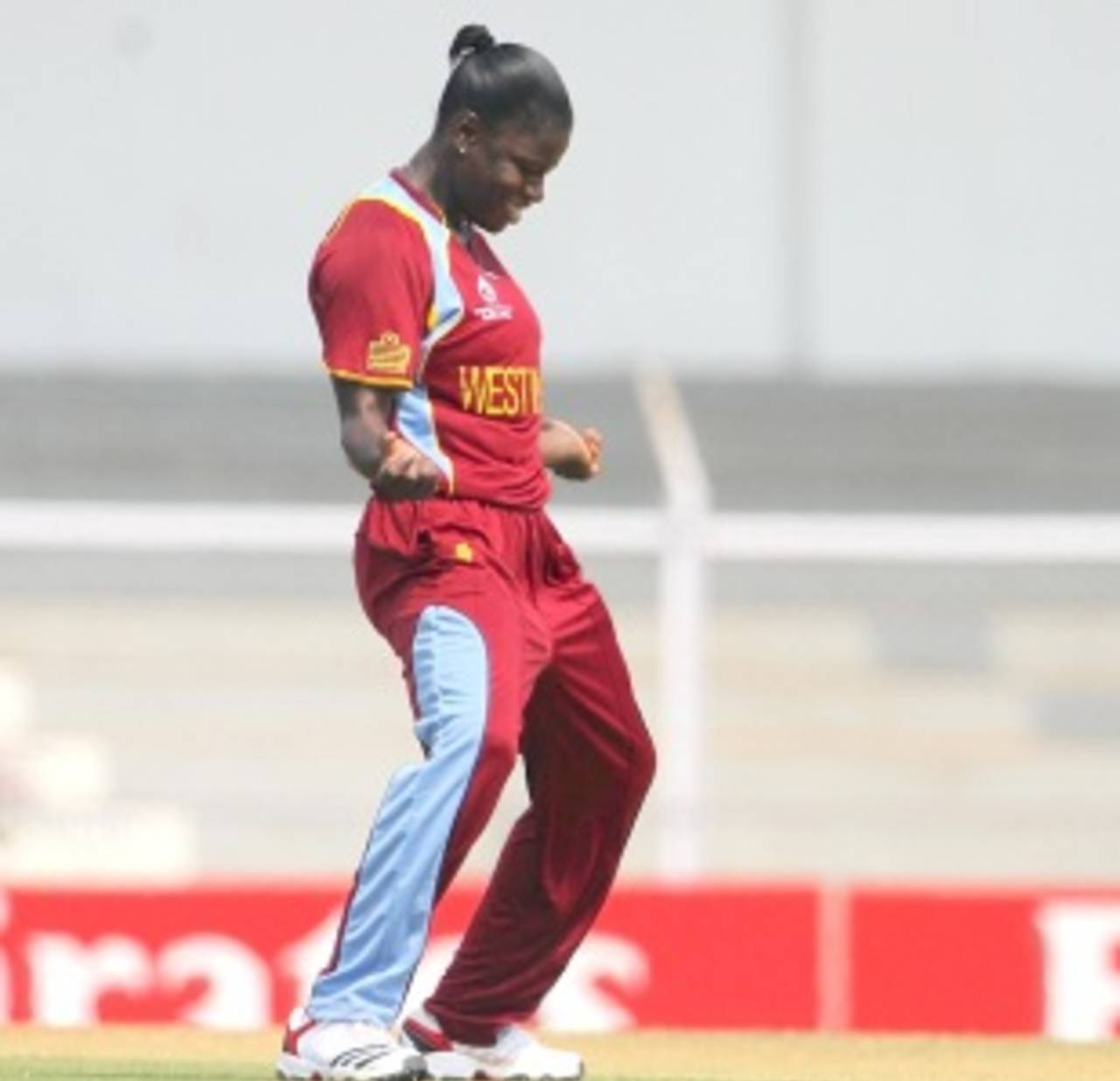In
a crucial Super Six match of the Women's World Cup that New Zealand captain Suzie Bates had called "almost a semi-final", her side was at the receiving end of four leg-before decisions. Sophie Devine got a thick inside edge onto the pad, Frances Mackay and Kate Broadmore got deliveries that, according to the ball-tracker, were headed down the leg side while Nicola Browne was struck just outside the line of off stump. New Zealand may or may not have lost the match to West Indies even if the correct calls had been made, but there is no escaping that the decisions influenced the game heavily.
Shahul Hameed from Indonesia, who made three of those decisions, is from the ICC's Associate and Affiliate international panel of umpires. He has officiated in 10 men's ODIs, the last of which was in 2007. He also did duty during the 2009 Women's World Cup. Although Hameed has stood in lesser ICC matches since then, 2009 was his last international before this World Cup. You won't see an umpire in a men's World Cup whose last international came in the previous edition. Vineet Kulkarni, from India, who gave Browne out, is from the international panel. The tournament does not have a single umpire from the elite panel.
Tony Hill, who is on the elite panel, is a common sight at men's international games, but he is at this tournament only in a mentoring role for the 13 officiating umpires, seven of whom are from the international panel and five from the Associate and Affiliate international panel. New Zealand's Kathy Cross is the only female umpire at the event.
Had umpires from the elite panel, such as Hill and, say, Billy Bowden stood in the middle in place of Hameed and Kulkarni, they might have made worse or better or the same decisions, but at least the players in question could have had the satisfaction of knowing that the best umpires the ICC has to offer had decided their fate, and possibly, the fate of a match that will have a bearing on who meets Australia in the final of a World Cup.
Bates' side was not the only one that has had to suffer in an important game. After England lost by two runs to Australia in their
opening Super Six match, their captain Charlotte Edwards went a step ahead of Bates in drawing attention to two umpiring calls that had gone against her team. Edwards and Laura Marsh had been given out lbw, with replays showing both deliveries would have missed the leg stump. "Two poor decisions definitely doesn't help," Edwards said. Ruchira Palliyaguruge from Sri Lanka of the international panel and Sarika Prasad from Singapore of the Associate and Affiliate international panel stood in that match.
Women's cricket is not high on priority lists, and even the biggest tournament in their game operates on a tight budget. That, along with just 10 of 25 matches being televised, may rule out an expensive tool like the DRS, though Bates said "there might have been a few decisions we might have referred today".
DRS, however, is a step that in an ideal world should follow the deployment of the best umpires available. The ICC feels it has done enough on the latter front. "These officials include some of the best up-and-coming umpires who will push for promotion to be the next generation of elite panel umpires," an ICC spokesperson told ESPNcricinfo. "This is the first time that ICC has appointed umpires from their official panels to the ICC Women's World Cup, and this was in recognition of the growing importance of the event. In the majority of matches these umpires have produced a very high level of officiating."
Steve Davis, from the elite panel, stood in three matches in the 2009 Women's World Cup: the final and two Super Six games. While the players may or may not agree with what the ICC has to say, the presence of elite-panel umpires here would have limited the reaction to incorrect decisions to questions on the absence of DRS, as it happens often in the men's game. It is doubtful if their availability was an issue. West Indies, Australia, Pakistan and South Africa were the only men's sides playing in series parallel to this tournament, where some of the 12 elite umpires were required. It is understood that the elite umpires come at a considerable cost placing greater burden on the budget, but the last thing anyone wants is for the Women's World Cup final to turn on the basis of a shocker made by an umpire who is not considered good enough for a match in the men's World Cup.
